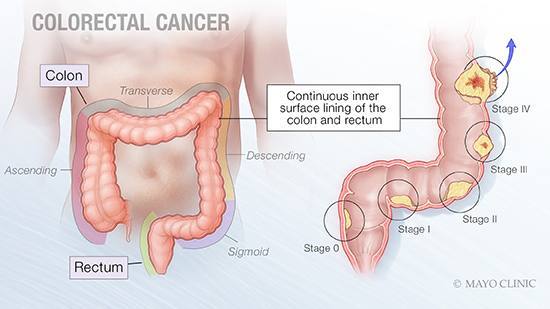-
Mayo Clinic Q&A podcast: Screening for colorectal cancer can be prevention

Colorectal cancer is a term that includes colon and rectal cancers, both of which originate in the lower portion of the large intestine and into the rectum.
"The vast majority of the time, we don't know exactly what causes any specific cancer," says Dr. Jeremy Jones, a Mayo Clinic oncologist. "But there are a number of factors that can increase the risk of developing colon or rectal cancer."
Dr. Jones says one risk factor is increasing age. However, he adds that over the last 30 years younger patients have seen a 50% increased risk of developing colon and rectal cancers.
In this Mayo Clinic Q&A podcast, Dr. Jones talks about risk factors, symptoms, treatment, health care disparities and the latest in colorectal cancer research.
Watch: Dr. Jones discusses colorectal cancer.
Read the full transcript.
___________________________________________
For the safety of its patients, staff and visitors, Mayo Clinic has strict masking policies in place. Anyone shown without a mask was either recorded prior to COVID-19 or recorded in a nonpatient care area where social distancing and other safety protocols were followed.







